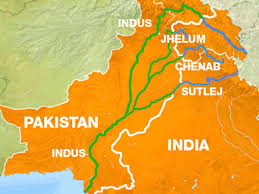Rivers are not merely the flow of water; they are the lifeblood that runs through the veins of civilizations. All great civilizations of the world, whether those along the Nile in Egypt, between the Tigris and Euphrates in Mesopotamia, or along the Indus River in the Indus Valley, have their origins tied to water. The presence of water gave rise to fertile lands, made agriculture possible, settled communities, and ultimately laid the foundation for culture, art, and knowledge. The Indus River is not just a river , it is the soul of the subcontinent. The five-thousand-year-old Indus Civilization, which manifested in cities like Mohenjo-daro and Harappa, stands as evidence of how water guided humanity toward consciousness, skill, and progress. When political leaders like Narendra Modi talk about stopping water, it is, in effect, a threat of “civilizational genocide.” Cutting off water not only affects a country’s agriculture, industry, and drinking supply, but also severs a historical and spiritual bond. The Indus Waters Treaty, signed in 1960 between India and Pakistan under international arbitration, is a historic agreement and is considered a successful model for water distribution globally. This treaty allotted the three eastern rivers to India and the three western rivers to Pakistan. If India violates this treaty, it would not only be a legal transgression, but also a breach of moral, humanitarian, and civilizational principles. Today, as the world grapples with climate change, water scarcity, and growing populations, using water as a “weapon” is a dangerous game with the future of humanity. Do we want a world where rivers turn into blood? Or one where water becomes a source of friendship, peace, and progress?

Altaf Choudhry
03.05.2025


Leave a Reply